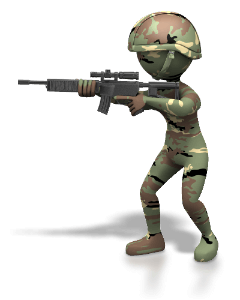The Echoes of History: How the Cuban Missile Crisis Mirrors Today’s Geopolitical Landscape

When we think back to pivotal moments in history, how often do we connect them to the lessons they impart? The Cuban Missile Crisis, a defining event of the Cold War, serves as a critical touchstone for understanding modern geopolitical dynamics. As we reflect on this crisis, we find echoes in today’s global affairs—especially in the context of media influence and political narratives.
Lessons in Media Manipulation
In eighth grade, I marveled at how the events of the Cuban Missile Crisis captured the attention of the world. Conversations about nuclear war filled the air, but it was a remark in history class that stuck with me: the role of media in shaping perceptions. This feels particularly poignant as we examine how the press has evolved—or perhaps devolved—into an engine of sensationalism.
Take, for example, the Spanish-American War, often cited as an early instance of ‘yellow journalism.’ Media moguls like Hearst and Pulitzer capitalized on sensational stories to provoke public sentiment and influence government action. Fast forward to today, and we find similar patterns. Historical narratives are continually reshaped, often obscured by the smoke and mirrors of fake news.
The Current Narrative: A Repetition of History
The ongoing conflict in Ukraine has reignited concerns about war cycles that can be traced back through history. Much like the hysteria surrounding the Cuban Missile Crisis, today’s geopolitical climate has led to unprecedented media narratives about Ukraine and Russia. The idea that Russia represents an existential threat has taken root, rallying public support for military initiatives under the pretense of national security.
Yet, as we dissect these narratives, one can’t help but notice the parallels to past conflicts driven by media sensationalism. The claims and counterclaims often leave the truth obscured, with facts twisted to fit political agendas.
Political Rhythms and Market Responses
The influence of media extends beyond just public perception—it plays a significant role in economic dynamics as well. The so-called "War Cycle" began in earnest around 2014 with events like the Ukrainian Revolution. Economies adapt and transform, reacting to the overlapping factors of politics and public sentiment. As economies shrink (as seen in Germany and Japan), the stakes rise, leading to decisions that often prioritize militaristic solutions over economic stability.
As we consider President Trump’s comments about the war, they echo the sentiments of those who believed that fear-driven narratives could lead to financial boons for certain sectors. His assertion that key players in the Ukraine conflict may not have been forthcoming about their actions reveals the dangerous interplay of misinformation and wartime economics.

The Media’s Role in Conflict Escalation
Perhaps even more troubling is the role that media plays in encouraging societal discord. The atmosphere we find ourselves in today, reminiscent of the hysteria of yellow journalism, fuels not only political discord but also militaristic posturing. This environment is exacerbated by misleading headlines, as major outlets further entrench divisions rather than promoting dialogue.
Moreover, the once-fringe idea of military action as a solution to economic difficulties is now mainstream, a shift that can largely be attributed to the media’s influence on public sentiment.
Conclusion: The Path Forward
As we navigate this complex landscape, it’s vital to remember the lessons history teaches us. The media will continue to be a double-edged sword, capable of igniting wars through sensationalism while also potentially fostering peace through thoughtful discourse.
At Extreme Investor Network, we encourage you to seek out diverse viewpoints, prioritize factual accuracy, and engage critically with narratives that shape our world. The future of our global community may depend on our ability to recognize the cycles of history and challenge the misleading stories that often dominate headlines.
By examining the parallels between historical and contemporary conflicts, we can equip ourselves to better understand and engage with the world around us. Keep following us for insights that delve deeper into economic and geopolitical trends. Your perspective matters—join the conversation!

